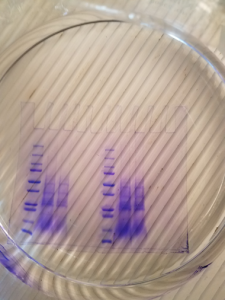While my summer internship intends to provide me with experience in chemical experimentation, biochemical assays, and data acquisition and presentation, I’ve realized that my summer research truly endows me with experience in complex problem-solving.
Although the theoretical aspects of my work in redox biochemistry are challenging, I find them understandable and logical. However, the application of theory through experimentation often renders me stumped. When I first began designing procedures for protein extraction while working with Dr. Timothy Foley, the procedures seemed simple. But, having applied the protocols, I quickly recognized that transforming theory into reality would be both complex and puzzling.
The search for answers to complex challenges in biochemical research renders the work both exciting and adventurous. Over the next few weeks, I hope to develop my skills in solving obstacles presented to me in chemical research. Even more importantly, I plan to learn from my research colleagues and Dr. Foley by asking questions when I doubt my understanding or my knowledge base. The first few weeks of my summer research internship have repeatedly reminded me how little I know about my work. As each optimization experiment presents a new challenge, I quickly understand that I may not know the answer, but I have resources to search for it. While I develop my talents in biochemical problem-solving and trouble-shooting, I hope to learn from my summer internship not only topics in biochemistry about which I know little, but also to be excited to say: I don’t know, but I’ll find out.

Stefan Olsen
Biochemistry
I find the integral nature of problem-solving in my research in Neuroscience as well, Stefan! It seems that no matter how well you plan your project, there are plenty obstacles to get through in order for procedures to run smoothly. While I’m sure this happens in almost every profession, researchers need the skill of problem-solving or thinking creatively to work around the more difficult equipment or technical based problems we often come upon.